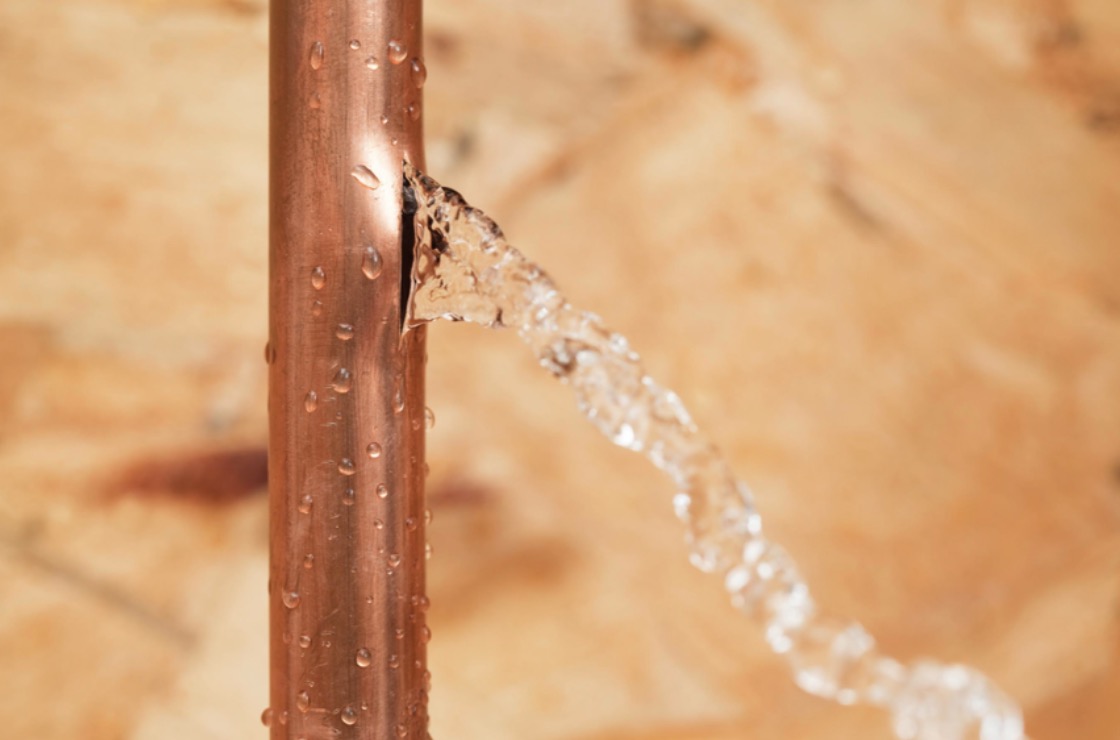The House's Primary Common Leak Factors: Examination
The House's Primary Common Leak Factors: Examination
Blog Article
Do you find yourself searching for know-how about Top Causes of Home Water Leaks?

Leaks not just cause waste of water yet can also trigger unneeded damage to your residence and promote undesirable organic growth. By looking as well as recognizing for day-to-day situations that trigger leakages, you can shield your home from future leaks as well as unneeded damages.
Encroaching roots
A lot of water leakages start outside the home rather than inside it. You may observe damp spots or sinkholes in your yard, and that might imply that tree roots are invading water lines triggering water to leak out.
Rusty water systems
As time goes by, your plumbing system ages as well as rust such as rust may start eating away the pipelines. This may be the source of staining or warping on your water pipes. This asks for an assessment with your plumber right away. Think about changing the pipelines given that they are at a higher risk of deterioration than the newer versions if our plumbing system is old.
Malfunctioning Pipe Joints
Pipeline joints can deteriorate over time, resulting in water leakages. If you have noisy pipelines that make ticking or banging sounds, particularly when the warm water is turned on, your pipeline joints are possibly under a great deal of stress.
Instant temperature adjustments.
Extreme temperature changes in our pipes can create them to increase and contract suddenly. This growth and also tightening might trigger fractures in the pipelines, particularly if the temperature are below cold.
Poor Water Connectors
Sometimes, a leakage can be triggered by loose hoses and also pipes that supply your appliances. Usually, moving is what causes the loose water Links. You might discover when it comes to a washing maker, a hose may spring a leakage as a result of shaking throughout the spin cycle. In case of a water links leak, you may observe water running straight from the supply line or pools around your appliances.
Clogged Drains
Blocked drains may be bothersome and also inconveniencing, but they can often end up triggering an overflow bring about break pipes. Maintain getting rid of any products that might go down your drains that can clog them to prevent such hassles.
All the above are root causes of leakages but not all water leakages result from plumbing leaks; some leakages may originate from roofing leakages. All leaks should be repaired immediately to prevent water damage.
Leakages not just trigger waste of water but can likewise trigger unneeded damage to your residence and promote undesirable natural growth. By understanding and looking for day-to-day situations that cause leakages, you can protect your home from future leaks and unnecessary damage. Today, we will look at six leakage triggers that might be triggering your pipelines to trickle.
At times, a leakage can be created by loose hose pipes and pipes that provide your devices. In instance of a water connections leakage, you might notice water running straight from the supply line or pools around your appliances.
How To Check For Water Leak In Your Home
How To Check for Leaks
The average household's leaks can account for nearly 10,000 gallons of water wasted every year and ten percent of homes have leaks that waste 90 gallons or more per day. Common types of leaks found in the home are worn toilet flappers, dripping faucets, and other leaking valves. These types of leaks are often easy to fix, requiring only a few tools and hardware that can pay for themselves in water savings. Fixing easily corrected household water leaks can save homeowners about 10 percent on their water bills.
To check for leaks in your home, you first need to determine whether you're wasting water and then identify the source of the leak. Here are some tips for finding leaks:
Take a look at your water usage during a colder month, such as January or February. If a family of four exceeds 12,000 gallons per month, there are serious leaks.
Check your water meter before and after a two-hour period when no water is being used. If the meter changes at all, you probably have a leak.
Identify toilet leaks by placing a drop of food coloring in the toilet tank. If any color shows up in the bowl after 10 minutes, you have a leak. (Be sure to flush immediately after the experiment to avoid staining the tank.)
Examine faucet gaskets and pipe fittings for any water on the outside of the pipe to check for surface leaks.
Undetected water leaks can happen without the home or business owner even realizing. If you suspect a water leak, but not able to find the source. It is time to contact a professional water leak detection service, The Leak Doctor.
How To Find a Water Leak In Your Home
https://www.leakdoctor.com/blog/How-To-Check-For-Water-Leak-In-Your-Home_AE197.html

I ran across that piece of writing about Common Water Leaks In House while surfing around the search engines. Are you aware of anybody else who is inquisitive about the niche? Please feel free to promote it. Thank-you for going through it.
24/7 plumbing excellence. Report this page